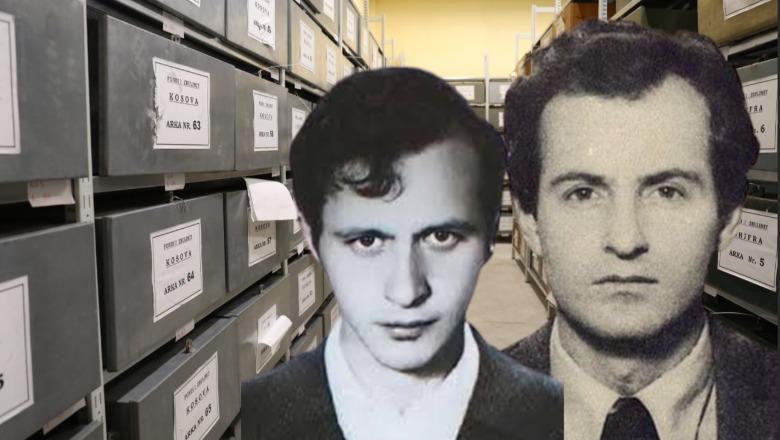Albanian authorities declassify ‘Kosova Fund’: over 11,000 historical files now public

A major step towards uncovering the historical relationship between Albania and Kosovo has been taken with the declassification of the ‘Kosova Fund’ by the Authority for the Files of the Former State Security. The unique archive contains 11,630 files, preserved in 74 vaults, now accessible to researchers and historians.
Why is this important: The newly declassified documents provide an unprecedented look into key political, social, and cultural events in Kosovo from 1944 to 1991. The files include intelligence reports on Kosovo’s youth movements, repression of Albanian rights, and state-led efforts to depopulate Kosovo through forced displacement.
Context: Among the most significant files are those of Jusuf Gërvalla, a well-known activist and writer assassinated by the Yugoslav secret service (UDB) in Germany, and Ibrahim Rugova, the historic leader of Kosovo’s peaceful resistance movement.
The archive also sheds light on some of the most turbulent periods in Kosovo’s history, including:
- The 1981 student protests, which escalated into a wider movement for Kosovo’s rights.
- The 1988–1989 political unrest, which saw increased Serbian repression.
- The crackdown on Albanian cultural and educational institutions.
The declassification of these documents provides researchers with first-hand information on how Albania’s communist government and its intelligence services perceived and responded to Kosovo-related events.
The ‘Kosova Fund’: The archive includes thousands of pages of intelligence reports, diplomatic assessments, and classified internal communications. Some key documents include:
- Reports on the 1981 Kosovo Protests – Three volumes, 687 pages, detailing intelligence gathered on student-led demonstrations.
- Government Crackdowns (March–April 1981) – Two volumes, 531 pages, documenting the Yugoslav authorities’ response.
- March 1982 Demonstrations – Two volumes, 593 pages, analyzing continued unrest in Kosovo.
- Beograd Diplomatic Files (1972–1981) – 149 pages of classified assessments on the political climate in Kosovo.
- Files on Ethnic Cleansing in Kosovo – A trove of documents revealing forced displacement campaigns.
Additionally, the archive contains secret communications from Albania’s Communist Party (PPSH) regarding:
- Torture and arrests of Albanians by Yugoslav authorities.
- Serbian efforts to reduce Kosovo’s Albanian population.
- Western diplomatic analyses of Albania’s stance on Kosovo in the 1980s.
Unseen history: One of the most compelling parts of the archive is the file on Jusuf Gërvalla, a Kosovo activist, writer, and musician who founded the National Liberation Movement of Kosovo. The declassified documents provide new insights into his life in exile in Albania, his political activities, and the circumstances surrounding his assassination in Stuttgart, Germany by Yugoslav intelligence operatives.
The fund also includes files on other key figures in Kosovo’s independence movement, including Adem Demaçi, Rexhep Qosja, and Bardhosh Gërvalla, offering a rare glimpse into how Albania monitored and engaged with Kosovo’s political landscape.
What’s next: The declassification of the ‘Kosova Fund’ is expected to fuel new academic research and public discussions about Kosovo’s past. It represents a significant step in preserving historical memory and ensuring that the struggles and sacrifices of Kosovo’s people are documented for future generations.


